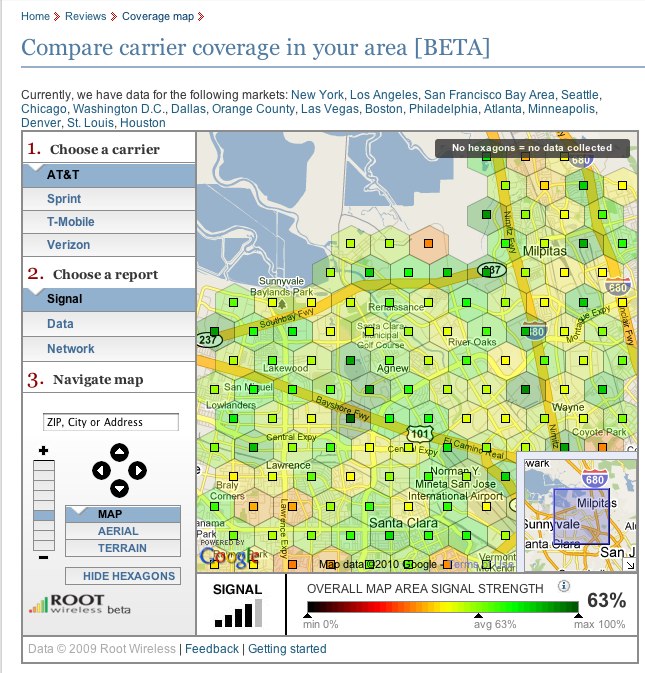App empowers smartphone users to report real-world coverage data

There are new crowdsourcing apps being launched for Blackberry and Android devices this week - and it promises to truth-squad those service coverage maps offered up by the wireless carriers.
Called Root Mobile, the free app is configured to run in the background on a smartphone device to record the locations - via GPS - where calls drop or data connections.
It's a cool idea because it finally starts to provide real-world granular detail on where signals are strong and where they fade, empowering consumers to find out what the true coverage is at their homes, places of work and commute routes between the two, among other places.
It also gives the wireless carriers are better look at the geographic locations that are lacking service from one area of town down to a residential cul-de-sac. In a statement, Root Wireless CEO Paul Griff said:
Our business is inspired by consumers who want true, unbiased coverage data, and by the many enthusiasts who are excited to use their devices to gather data needed to change the way phones are bought and sold. We expect that those using Blackberry and Android handsets will do a terrific job kick starting crowdsourcing on behalf of all consumers.
The app works on the Google Nexus One, Motorola Cliq, Motorola Droid Eris and T-Mobile G1, as well as the Blackberrys Bold, Tour, Curve and 8830. The company said it expects a Windows Mobile before summer and that a version for the iPhone is being engineered. (Verizon and Root are working together on a special version for Motorola Droid devices, which are using a version of Android different from other devices.)
Last fall, the company teamed with CNET to showcase the service tests in New York, Los Angeles,the San Francisco Bay Area, Seattle, Chicago, Washington DC and Orange County, Calif. Since then, it has added Dallas, Las Vegas, Boston, Philadelphia, Atlanta, Minneapolis, St. Louis and Houston with at least five more cities coming soon.
As enough user-generated data comes in for new markets, the results will be posted, the company said.